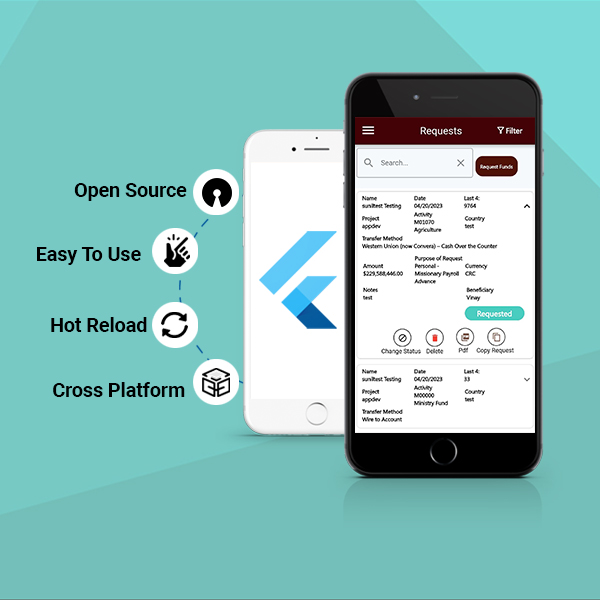Pros And Cons - Should You Choose Flutter For Your App Development? Connect Infosoft
One of the most widely used platforms for creating hybrid mobile apps is Flutter. As a platform for Flutter Apps Development, it lets Flutter developers make incredibly responsive mobile apps that work on Android and iOS smartphones. It offers a wide range of features and tools that make the process of developing mobile apps smoother and faster. In this blog post, we will discuss why Flutter is the best platform for creating hybrid mobile apps.
Flutter comes with a wide range of tools like APIs and libraries, becoming a one-stop shop for developers. Especially if you want your application to be accessible to everyone, it is a perfect choice.
If you are also looking forward to using Flutter, here are the advantages and disadvantages of Flutter one should be aware of.
Flutter of App Development: Pros
-
Cross-Platform Development:
Flutter allows you to develop applications for multiple platforms, including iOS, Android, web and desktop, using a single codebase. This saves development time and effort by eliminating the need to write separate code for each platform.
-
Fast Development and Hot Reload:
Flutter offers a hot reload feature that enables developers to see the changes made in the code immediately on the app, eliminating the need for lengthy compilation and deployment cycles. This speeds up the development process and allows for quick iteration and experimentation.
-
Rich UI and Customization:
Flutter provides a rich set of pre-built UI components and widgets, allowing developers to create visually appealing and highly customizable user interfaces. Flutter's flexible UI framework enables developers to create unique and engaging app designs.
-
High Performance:
Flutter apps are known for their high performance due to the framework's use of Dart, a compiled programming language. Dart's Just-in-Time (JIT) compilation during development and Ahead-of-Time (AOT) compilation during deployment result in fast and efficient app execution.
-
Access to Native Features:
Flutter provides access to native device features and APIs through plugins. Developers can leverage a vast ecosystem of plugins to access platform-specific functionalities, such as camera, geolocation, sensors and more.
Flutter of App Development: Cons
-
Limited Maturity:
While Flutter has gained significant popularity, it is still considered a relatively new technology compared to more established frameworks. As a result, the ecosystem and community support might not be as extensive as some other frameworks.
-
Large App Size:
Flutter apps tend to have larger file sizes compared to native applications, as they include the Flutter engine and framework. This can result in longer download times for users, especially in regions with slower internet connections.
-
Limited Access to Platform-Specific APIs:
While Flutter provides access to many native features through plugins, there may still be certain platform-specific APIs that are not yet available or fully supported in Flutter. In such cases, developers may need to write platform-specific code or rely on workarounds.
-
Learning Curve:
Flutter uses Dart as its programming language, which might require developers to learn a new language if they are not already familiar with it. Additionally, mastering the Flutter framework and its concepts may take time, especially for developers who are new to cross-platform development.
It's important to weigh these Pros and Cons in the context of your specific project requirements and team expertise. Flutter can be a powerful choice for developing cross-platform applications, offering speed, efficiency and a rich set of tools.
Tags: Pros And Cons of Flutter App Development, Flutter Dev Team, Flutter Developer, Flutter Development, Flutter Apps Development , Flutter app development company, Hire Flutter Apps Developer, Flutter Mobile Applications


